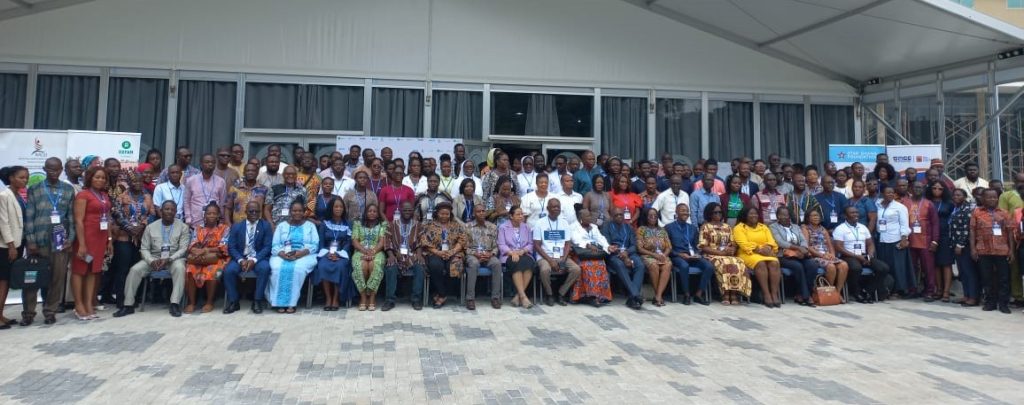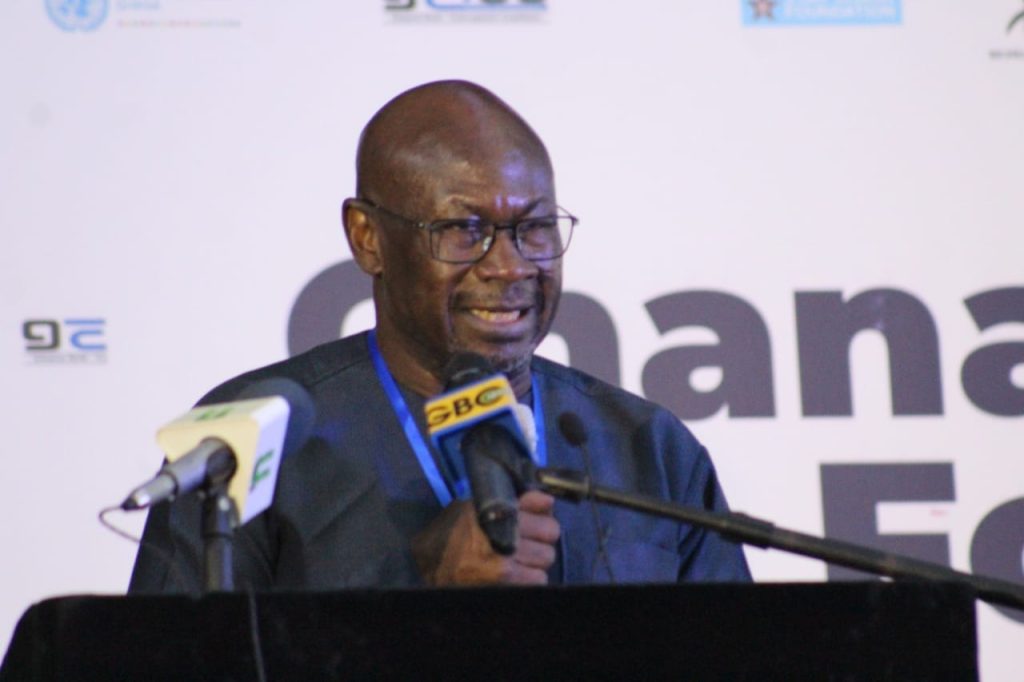By James Amoh Junior
Accra, June 26, GNA – Mr Charles Abani, the United Nations (UN) Resident Coordinator in Ghana, has urged Civil Society Organizations (CSOs) to prioritize value-driven legitimacy and effectiveness in their actions.
He said legitimacy should be derived not only from constituencies but also from the values and principles civil society stood for.
Effectiveness on the other hand, the UN Resident Coordinator, speaking at the opening of the 2024 Ghana Civil Society Forum, said should be measured by the level of influence civil society exerted on various issues and the outcomes it achieved.
The two-day forum, the 2nd Edition, is on the theme: “Civil Society at an Inflection Point: Strategizing for Increased Legitimacy, Effectiveness, and Sustainability.”
Participants, from CSOs across the country, deliberated on three sub-themes: ensuring legitimacy with constituents and stakeholders, achieving effectiveness as organizations, and ensuring sustainable operations, revenues, and impacts.
The forum serves as a common platform for civil society organizations (CSOs) in Ghana to deliberate and reflect on their work as facilitators of good governance and inclusive development.
It was birthed after several rounds of inclusive consultations involving a diverse array of CSOs operating in Ghana and provides a space and mechanism to facilitate collective and inclusive actions towards the effectiveness, legitimacy, and sustainability of the civic sector and its organizations.

Mr Abani said by maintaining legitimacy and focusing on effectiveness civil society could enhance its credibility and impact.
He said there should be a shift towards constructively challenging existing norms and narratives to drive progress and shape a more sustainable future.
By critically examining current systems and advocating for change, Mr Abani, also a seasoned international development practitioner, stated that civil society could play a vital role in addressing global challenges like current global economic crises and climate change.
He said an effective strategy for civil society organizations to tackle climate change was to focus on building an active climate movement.
Such a move, the UN Coordinator said, should not only be global but also extend to the grassroots level, involving relevant communities.
Mr Abani, who has worked across Africa, Asia and Europe with development organizations, observed that sustainable energy initiatives and inclusivity in energy access could be pivotal in mitigating climate challenges.
Fostering collaboration across different sectors, including government, private, and civil society, is essential for implementing impactful climate change solutions, he added.
To foster collaboration across sectors and regions for impactful change amidst global challenges, Civil Society needs to reframe its approach by embracing pragmatism, inclusivity, and strategic partnerships beyond ideological purity.
Mr Charles Abugre, Vice Chairman, Governing Council, SGF, who joined virtually, said the historical debate on the essence of humanity had significantly influenced the current understanding of Civil Society.
He said, in the 19th century, influenced by Germanic and Eastern European philosophical and political economy debates, key figures like Frederick Andrews and Karl Marx delved into questions concerning the essence of humanity and the social drivers of change in society, leading to the formulation of ideas that shaped our contemporary understanding of Civil Society.
He said the foundation of the current understanding of Civil Society rested on historical debates that explored the main purpose of human existence and the factors driving social change within societies.
Those discussions, Mr Abugre, also a Development Economist, said questioned whether self-interest, economic structures, political institutions, or democratic principles were the primary drivers of societal transformation.

Those reflections continued to impact how society in the present day perceived and defined Civil Society.
Alhaji Amidu Ibrahim-Tanko, Executive Director, STAR-Ghana Foundation, said the role of civil society wad critical in ensuring sustainable development at all levels.
He said in the past civil society used to be funded primarily by foreign donors and that it was time to diversify funding sources for CSOs as the global economic crisis was linked to the decline in the kind of support they received.
The Executive Director reiterated that one of the Forum’s objectives was to critically engage stakeholders to look at other forms of funding through social enterprise, and local philanthropy, among others, to ensure sustainability.
GNA